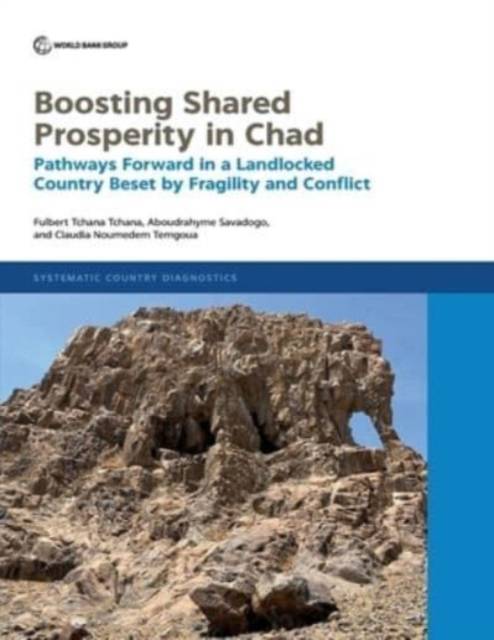
- Afhalen na 1 uur in een winkel met voorraad
- Gratis thuislevering in België vanaf € 30
- Ruim aanbod met 7 miljoen producten
- Afhalen na 1 uur in een winkel met voorraad
- Gratis thuislevering in België vanaf € 30
- Ruim aanbod met 7 miljoen producten
Zoeken
Boosting Shared Prosperity in Chad
Pathways Forward in a Landlocked Country Beset by Fragility and Conflict
Fulbert Tchana Tchana, Aboudrahyme Savadogo, Claudia Noumedem Temgoua
€ 62,45
+ 124 punten
Omschrijving
Chad remains among the least developed countries in the world; its GDP per capita has contracted since 2015, preventing the country from reducing poverty and from improving development outcomes. Progress on reducing poverty has stalled, and the number of extreme poor has increased, with both trends exacerbated by the COVID-19 pandemic. Boosting Shared Prosperity in Chad is an update of the 2015 Systematic Country Diagnostic (SCD); this update confirms that economic growth and poverty reduction continue to be hindered by the same constraints that were previously identified: weak human capital and a slow demographic transition, low productivity, low incomes from economic activity in rural areas, insufficient and volatile infrastructure investments, high gender inequality, and weak public administration services. This SCD update adds three more constraints: insecurity and conflict, inadequate macroeconomic management of economic shocks, and vulnerability to climate change, all of which increasingly undermine progress. Boosting Shared Prosperity in Chad argues that the success of reform efforts will depend on the country's ability to address the drivers of fragility, conflict, and violence; adapt to climate change; promote an adequate macrofiscal framework; and create a business-friendly regulatory environment. Pathways to accelerate poverty reduction focus on strengthening human capital, improving infrastructure, and developing sectors with strategic advantages.
Specificaties
Betrokkenen
- Auteur(s):
- Uitgeverij:
Inhoud
- Aantal bladzijden:
- 100
- Taal:
- Engels
- Reeks:
Eigenschappen
- Productcode (EAN):
- 9781464818868
- Verschijningsdatum:
- 1/12/2022
- Uitvoering:
- Paperback
- Formaat:
- Trade paperback (VS)
- Afmetingen:
- 216 mm x 279 mm
- Gewicht:
- 340 g

Alleen bij Standaard Boekhandel
+ 124 punten op je klantenkaart van Standaard Boekhandel
Beoordelingen
We publiceren alleen reviews die voldoen aan de voorwaarden voor reviews. Bekijk onze voorwaarden voor reviews.











